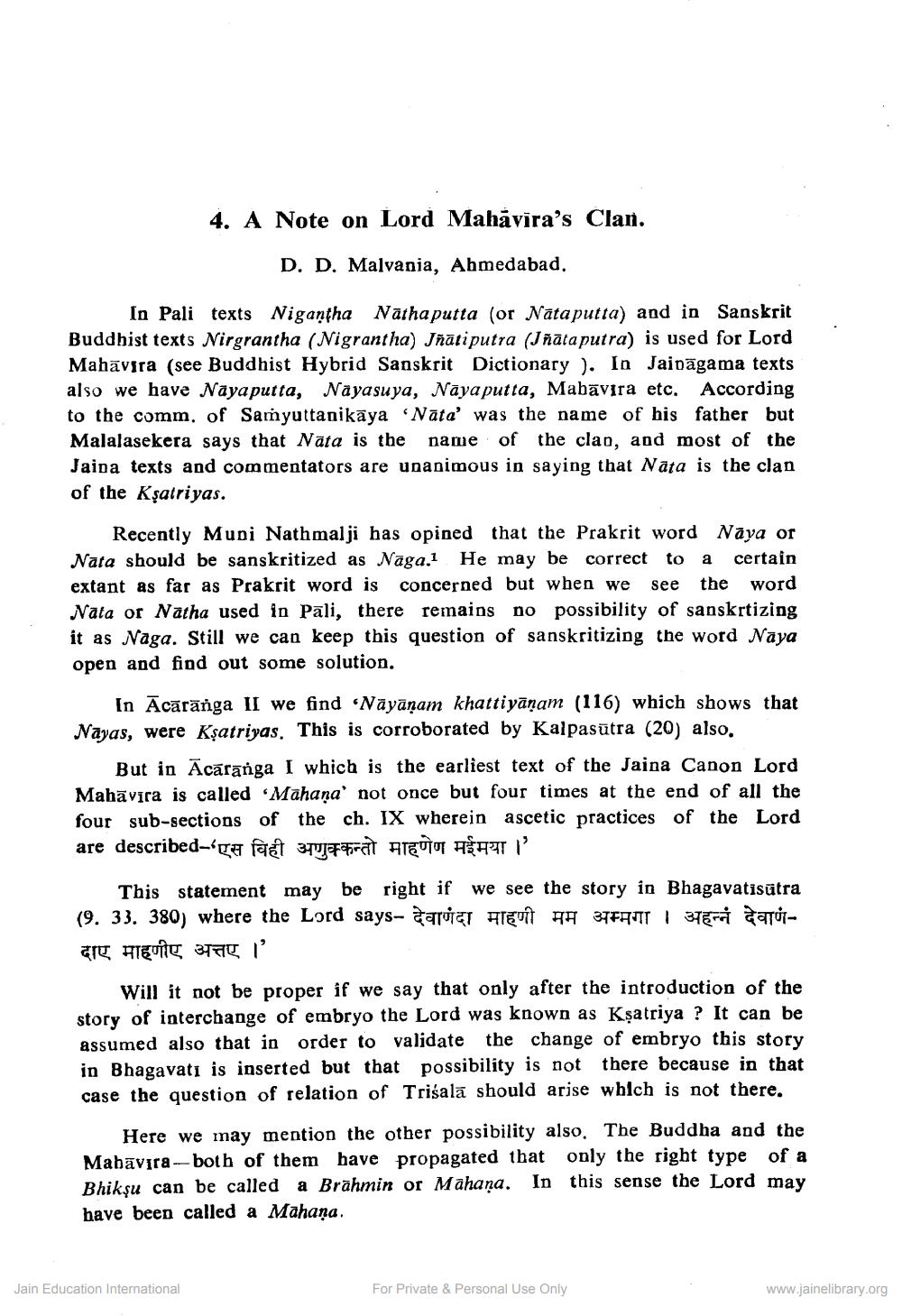________________
4. A Note on Lord Mahavīra's Clan.
D. D. Malvania, Ahmedabad.
In Pali texts Nigantha Natha putta (or Nataputta) and in Sanskrit Buddhist texts Nirgrantha (Nigrantha Jñati putra (Jnāta putra) is used for Lord Mahāvsra (see Buddhist Hybrid Sanskrit Dictionary ). In Jaidāgama texts also we have Naya putta, Nayasuya, Naya putta, Mabāvira etc. According to the comm. of Samyuttanikāya 'Nata' was the name of his father but Malalasekera says that Nata is the name of the clan, and most of the Jaina texts and commentators are unanimous in saying that Nata is the clan of the Kşatriyas.
Recently Mupi Nathmalji has opined that the Prakrit word Nāya or Nata should be sanskritized as Naga. He may be correct to a certain extant as far as Prakrit word is concerned but when we see the word Nata or Natha used in Pāli, there remains no possibility of sanskrtizing it as Naga. Still we can keep this question of sanskritizing the word Naya open and find out some solution.
In Ācārānga II we find «Nāyānam khattiyānam (116) which shows that Nayas, were Kșatriyas. This is corroborated by Kalpasūtra (20) also.
But in Ācāranga I which is the earliest text of the Jaina Canon Lord Mahāvıra is called 'Mahana' not once but four times at the end of all the four sub-sections of the ch. IX wherein ascetic practices of the Lord are described-qh Fact Sujetra ATEŪTOT HATI
This statement may be right if we see the story in Bhagavatisātra (9. 33. 380) where the Lord says, daruici HEUTT AF 3FFAMTT I STEP daruदाए माहणीए अत्तए ।'
Will it not be proper if we say that only after the introduction of the story of interchange of embryo the Lord was known as Ksatriya ? It can be assumed also that in order to validate the change of embryo this story in Bhagavati is inserted but that possibility is not there because in that case the question of relation of Trisalā should arise which is not there.
Here we may mention the other possibility also. The Buddha and the Mabāvira-both of them have propagated that only the right type of a Bhikṣu can be called a Brāhmin or Mahaņa. In this sense the Lord may have been called a Mahaņa.
Jain Education International
For Private & Personal Use Only
www.jainelibrary.org




